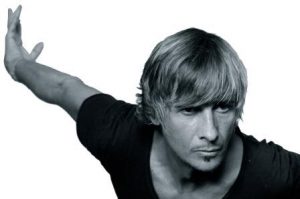by Francesca Cassia And Roberto MIlletti www.odakayoga.com
Let’s repeat as our mantra: “Happiness is a state of the soul. A state of innate joy in living the present moment.”
Happiness is not an uninterrupted sequence of pleasures. Happiness cannot depend on external factors that consume it and make it vulnerable. Happiness does not become agitated, does not adapt to tricks nor does it logically make sense or does it need cooling off. Happiness is a mental state that enables one to handle joyful and painful emotional states in the same way. Just like the ocean floor, which remains still even when there are ripples at the surface.
“Happiness is not in acquiring and enjoying [what we purchased], but in the not desiring anything, which is the only way to feel free.” – Epictetus
In primordial yoga there existed developmental spiritual practices that would train the body and mind to observe oneself to become more aware of one’s nature. The original purpose of yoga was to cultivate discernment, understanding and one’s superior conscience. Within the course of time, there was a split between those who searched for physical development and those who searched for spiritual development. The lack of consciousness and attention for an internal experience, gradually disconnected the student from his/her body. Instead, the intrinsic meaning of yoga remains to expand one’s level of consciousness.
Happiness is a quality of the soul – as Patanjali teaches – the more we are “connected” to ourselves, therefore, to our soul (or Superior Self), the more we are happy. Yoga has had the high regard of imposing on the Western world a modern tool capable of reducing stress, improving well-being and increasing flexibility. [Yoga] in its expansion has highlighted the great work it does on a muscular level and, at times, forgetting the importance of its main objective: one’s consciousness that differentiates and elevates it with respect towards other sports. Narcissism, that is often seen in many sports, is the result of excessive embellishment that focuses on the actual pose and alignment. However, this places a conceptual distance from the true practice of yoga. Improving one’s flexibility is something that one gains over time. But, this is not the aim. This is an example that certain sports are transfixed on asanas that they forget the entire meaning of yoga.
Gurdjeff always said that only one thing is necessary: do not identify with what comes and what goes. “The morning comes, then the afternoon, then the evening. Night comes and then again the morning. But, you remain. If you identify yourself, you become the mind; if you identify yourself, you become your body; if you identify yourself, you become your name and your form; and the owner of the house is lost.”
The essence of an Odaka Yoga practice coincides with this thought; yoga is a means to an end and not the end. Extraordinary power is enclosed in the present moment; one needs to transform “doing yoga” into “being yoga.” Only in this way, can yoga become an instrument that sharpens the mind and allows one to see reality clearly. On the mat we must answer the question: “what defines the present moment?” By grounding our consciousness directly into action, completely in the present, at every point of existence, we can prepare ourselves until no problem and no suffering can settle within us. If through yoga we are able to find our physical, mental, emotional, spiritual, and social balance, then body, mind, heart and spirit will establish a complete, profound and lavish happiness on every level. Obstacles, challenges and difficulties do not appear as negative events, but simply as experiences for our growth and evolution.
It is not easy being in the present moment. It is easier to set objectives and direct ourselves towards the future of our dreams….but this behaviour can create the mind to be trapped in the future.
The yoga mat is a microcosm. Every action and intention “affects” our nervous system and is copied in daily life. When we practice we must pay attention to the messages our bodies send and focus on its physical and emotional intelligence. Presence in yoga is centered in the reality of our bodies because our bodies do not “lie.” If one notes physical stress, the mind might deny it. But, not the body. Yoga uses the simple transparency of our bodies as a means to guide our minds to the here and now. If we tune our minds towards completely listening to the totality of every single instant, we can give ourselves magnificent feelings of happiness. A happiness that insists on our journey of discovery.
The mind considerably influences our wellbeing; even science is gradually recognizing the importance of mental behaviour and how it is tightly bound to our health. Our mind is an extraordinary instrument. We need only to learn how to use it wisely. Even though an asana is important, we must understand that it is only an instrument not the goal. We have to count on a peaceful mind, an open heart and kind and compassionate behaviour – not on perfect alignment! Where our thoughts go, our energy follows! Let’s not forget that.
“If you are compassionate with your body, this will repay you with moments of happiness.”

